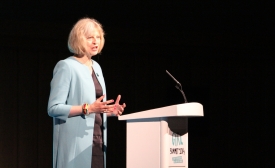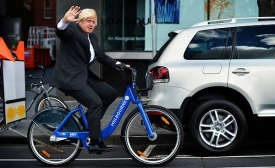brexit
There is increasing evidence that we may end up with a hard Brexit. Britain will activate Article 50: the UK will retain control of its own borders, but without access to the single market or European passporting for its financial services industry. While many would portray this as a failure of diplomacy, it may be a smart negotiating tactic.

What can Theresa May learn from Mao Zedong?
Britain is currently a highly influential actor in the international development system, due to a combination of its financial clout and soft power, which enables influence without resorting to force or money. The UK has been one of the most important donors to multilateral initiatives such as the World Bank’s International Development Association and the EU’s European Development Fund.
A new global “soft power” ranking recently reported that the democratic states of North America and Western Europe were the most successful at achieving their diplomatic objectives “through attraction and persuasion”. Countries such as the US, the UK, Germany and Canada, the report claimed, are able to promote their influence through language, education, culture and the media...
“From an increase in flight connectivity, to promotion of the country through the success of films and TV shows set in Scotland such as Outlander...to the launch of our first global marketing campaign – Spirit of Scotland – there are numerous individual reasons why tourism is performing well...as a world-class destination."
The U.K.'s enormous soft power, painstakingly built in the post-imperial era, looks weakened following Brexit. In fact, negotiating acceptable divorce terms or preventing an economic decline may prove much easier than restoring British influence. Some early indications of how Brexit has damaged the U.K.'s international perception can be found in a recent Ipsos poll conducted in 16 countries.
The 2012 image of Britain’s new Foreign Secretary, Boris Johnson, waving the Union Jack while haplessly snagged on a zipline above London, seems an apt image for the situation he has inherited, and indeed played a major part in creating. [...] this piece is limited to considering the implications of “Boris Diplomacy” for British public diplomacy and soft power.

On Boris Johnson and Britain's post-Brexit soft power.







